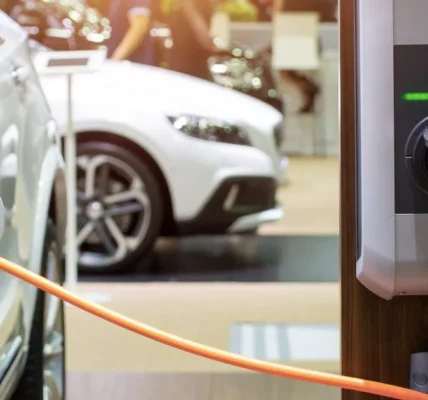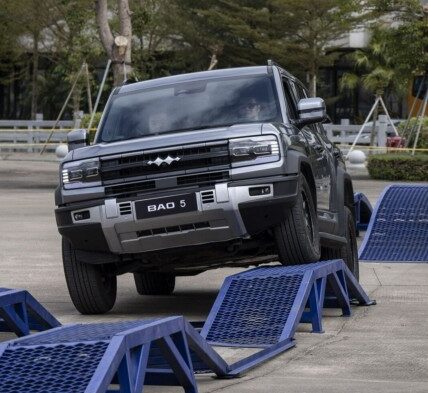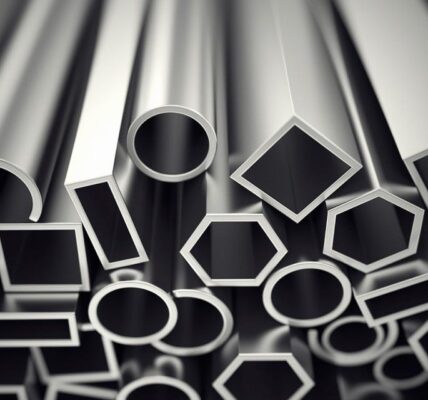Global automakers have brought strong electric vehicle offerings to China’s annual import fair, the 2022 China International Import Expo (CIIE). They include Volkswagen, BMW, Toyota, Honda, Ford, Hyundai, and GM.
These traditional automakers are accelerating new EV rollouts in China as they find themselves in danger of being left behind by Tesla and much younger local rivals amid the country’s surging adoption of intelligent and connected EVs.
Though the expo showcases companies in various industries, from consumer goods to medical devices to smart manufacturing suppliers, CIIE has become a major auto show. Automakers came to the expo with vehicle debuts, futuristic concepts, and cutting-edge car tech. Here’s a look at some of the key auto launches at this year’s CIIE, which ended Thursday.
Volkswagen brought its latest electric sedan concept, the ID. Aero (part of VW’s purely electric ID. lineup) to the 2022 CIIE. Built on a dedicated EV architecture known as MEB, the car has a driving range of 620 kilometers (385 miles), a battery pack of 77 kilowatt-hours (kWh), and is scheduled for delivery in China in the second half of 2023.
The low-slung car will also be equipped with an in-car connectivity system, which for the first time since the German auto giant’s entry into China in 1984 has been developed by Volkswagen’s local team. Volkswagen plans to expand its Chinese software team by 50% to 1,200 engineers by the end of next year, Chinese media outlet Jiemian reported, citing Sun Wei, the chief technology officer of Cariad China, the manufacturer’s software subsidiary.
BMW brought only electrified vehicles to this year’s expo, including the i4, the brand’s first all-electric sedan model that went on sale in China in February with a price range of RMB 449,900 – RMB 539,900 ($62,036 – $74,446). The carmaker also showcased the i7, the first-ever all-electric of the seven-series, the brand’s most luxurious and advanced product lineup.
The success of these luxury models is vital: China sales of the German car giant declined 11.5% year-on-year to 592,873 vehicles for the first nine months of this year, while that of its “born electric” i-series bucked the trend with an annual increase of 65%. Chief executive Oliver Zipse on Nov. 4 reaffirmed commitment to its China growth plans, aiming for more than 25% of its car sales to be all-electrics in the country by 2025.
This year, General Motors’s Durant Guild, the company’s new direct sales business, made its first global appearance to the public during the expo and introduced the Cadillac Celestiq, an ultra-luxury flagship electric sedan.
The low-volume electric fastback is priced at around $300,000 in its home market and will be available to well-heeled Chinese consumers via a direct sales and import vehicle platform. Production will begin in GM’s global technical center in Michigan next December.
Also making its local debut is the GMC Hummer sports utility vehicle, GM’s first all-electric Hummer. The US automaker expects such “halo cars” to create significant buzz around its Cadillac and lower-end Chevy brands and enhance its image as an innovative automaker, Julian Blissett, the head of GM in China, told Reuters in September.
CIIE 2022 also saw the local debut of the long-awaited Ford F-150 Lightning, an all-electric version of America’s best-selling pickup truck over the past four decades. The Detroit auto giant touted the full-size pickup truck as being able to accelerate from 0 to 96 km/h (60 mph) in under four seconds and power a home for up to three days of regular usage during a blackout.
Ford has ramped up its EV business in China following the establishment in September of Ford Electric Mach Technologies, a subsidiary dedicated exclusively to the research, development, and operation of intelligent battery-powered cars. Early in the month, the manufacturer slashed the prices of its Mach-E electric crossover lineups by nearly 10%, as it rushed to keep up with the rising competition.
Having continued to focus on the current generation of gasoline-electric hybrids, Japanese automakers are beginning to turn their attention to fully electrified cars.
Toyota showcased the bZ3, the second model under its new “Beyond Zero” (bZ) all-electric series, as well as the first result of its collaboration with its EV partner BYD, more than three years after the two companies forged an alliance for EV making. Scheduled for sale by year-end, the China-model bZ3 is equipped with BYD’s “blade batteries,” which the manufacturer boasts have made new achievements in both safety and power, and assembled at a joint plant operated by partner FAW Group in Tianjin. Pricing details remain unknown.
Honda showed its e:N2 concept EV for the first time at this year’s CIIE. It is the second model under Honda’s Chinese-market e:N lineup. The company began selling its first “e:N series” model, the e:NS1 SUV, at a starting price of RMB 175,000 ($24,609) in April and plans to expand the portfolio with the introduction of 10 new EV models over the next five years.
The Japanese carmaker has experienced a downward trend in China, with sales of passenger cars from its joint venture with partner GAC Group declining 28.3% year-on-year to around 56,000 units, according to figures published by the China Passenger Car Association on Wednesday.
Hyundai brought something new to Shanghai this time, and it wasn’t only about electric cars. The South Korean maker said it plans to introduce its NEXO hydrogen-powered SUV to the Chinese market later this year, adding that its first purpose-built fuel cell EV has now been certified for sale by regulators. The NEXO crossover is the top-selling FCEV with a global market share of nearly 60% and recorded sales of 8,449 units globally for the first nine months of this year, according to figures compiled by industry tracker SNE Research.
The automaker also showcased its first all-electric sedan, the Ioniq 6, for the first time in China, a vehicle it hopes will make an impact in a market segment dominated mainly by Tesla’s Model 3. The vehicle has a claimed driving range of 610 km (379 miles) and can charge from 10% to 80% in as little as 18 minutes with an 800-volt electrical system.








